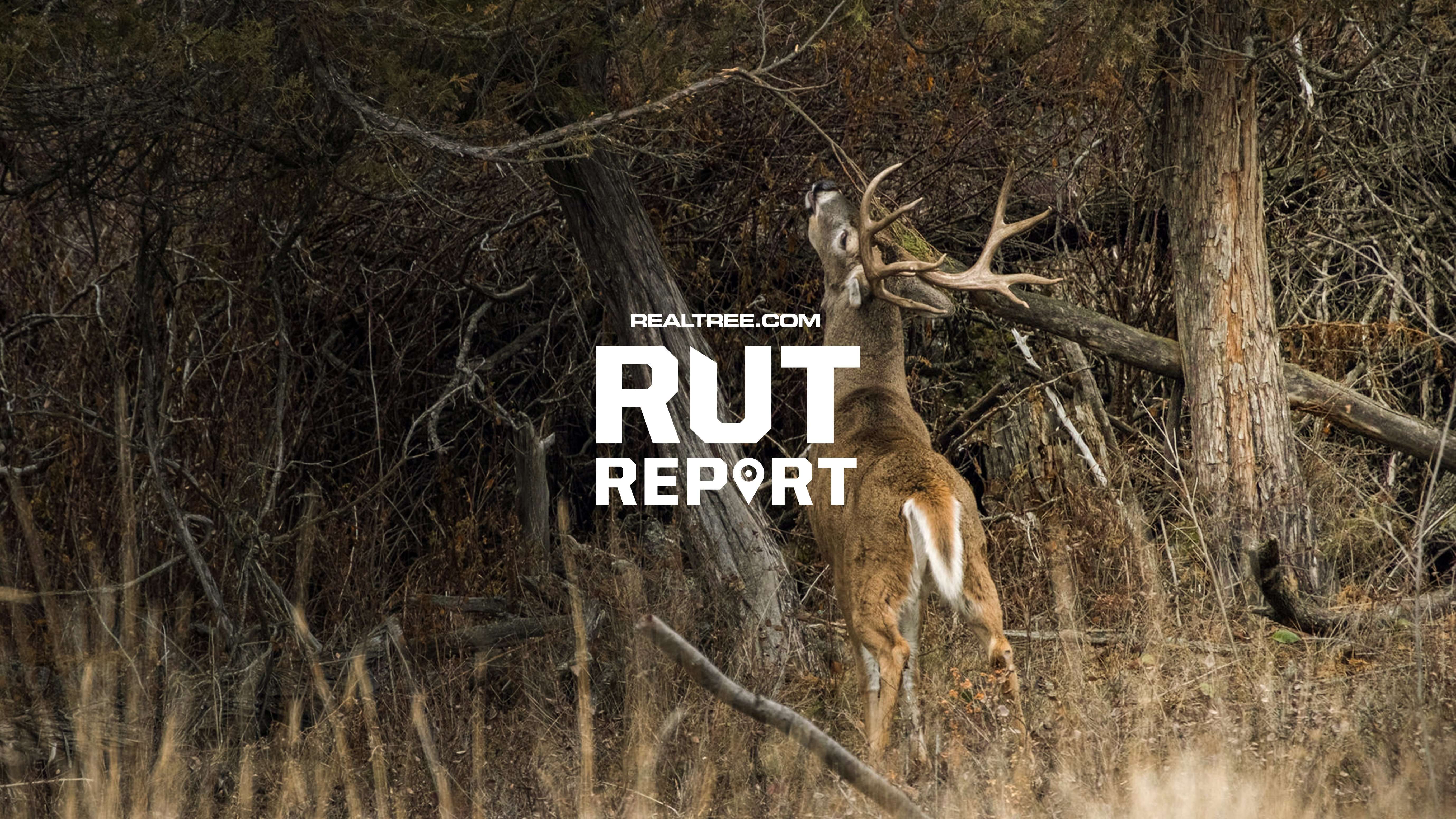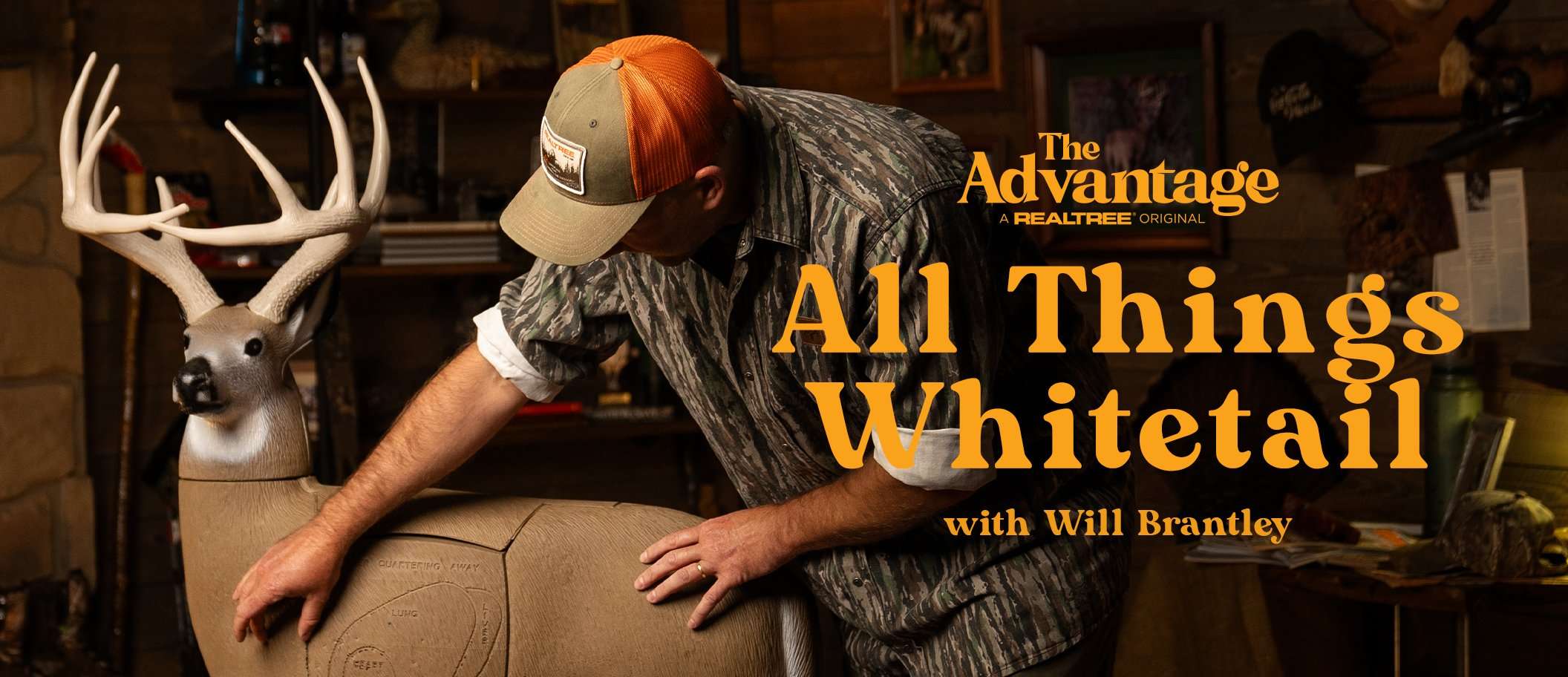A look inside the strange condition of cryptoridism in white-tailed deer
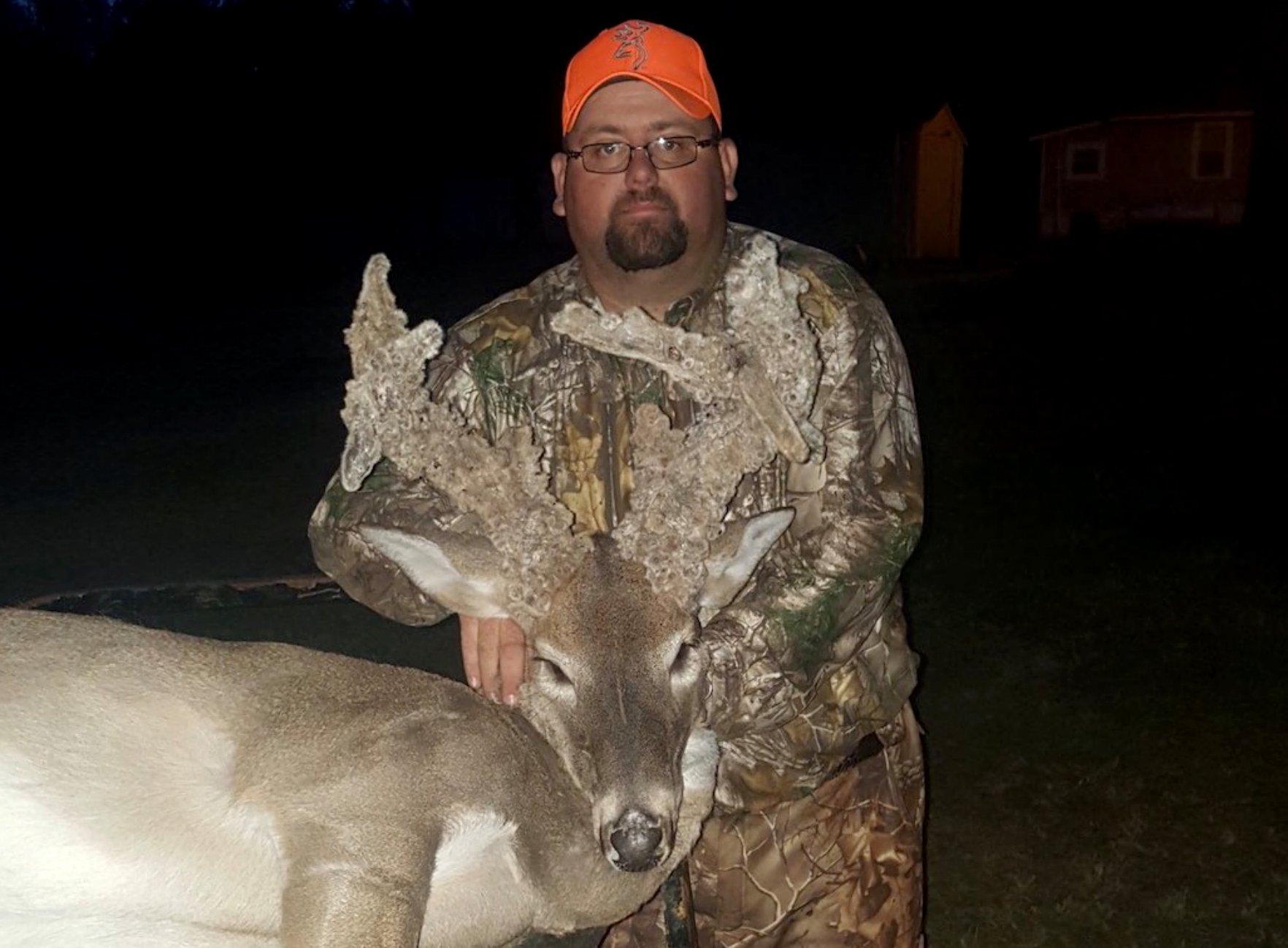
Casey Burnett tagged this big crypto buck in central Alabama. Image courtesy of Casey Burnett
A few years ago, Casey Burnett and his buddy leased a piece of good-looking dirt in central Alabama. They set out their trail cameras and returned a few weeks later to find out what kind of deer the new property held. The hunters thumbed through the camera images — doe, doe, fork-horn, nice 8-pointer … and then wow, the wildest deer they had ever seen. The buck had misshapen tines and beams as thick as fence posts, all covered with masses of velvet-covered nodules. They named the animal “The Freak” and prayed that one of them of got a crack at the mutant before the neighbors did.
During the next three months, the die-hard hunters got about 200 images of the oddball buck. The Freak was visible on camera but a ghost when the hunters were on post in daylight. Until one day in December. Casey looked up and spotted Freak running across a clearcut. He leveled his rifle, stopped the deer with a bleat and made a perfect shot.
“I never thought in a million years I would ever kill a buck like that,” he said. A fitting statement, because the odds are, oh, about a million to one of anybody ever shooting a crypto buck.
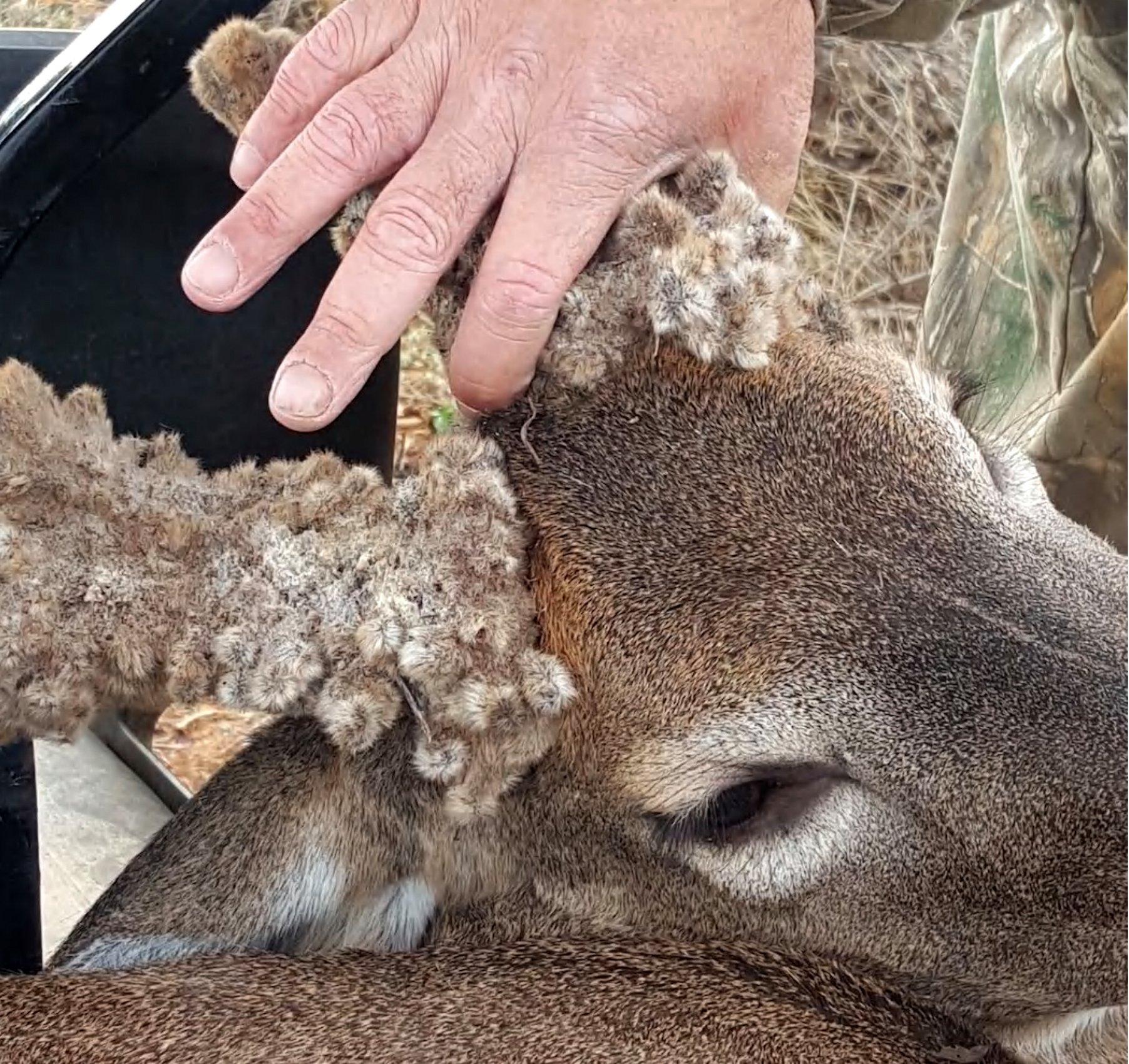
This crypto deer had incredible mass measurements. Image courtesy of Casey Burnett
What Is a Crypto Buck?
Sometimes called a stag, the odd buck exhibits abnormal antler growth and retains velvet on his rack year-round.
Scientists refer to this condition as cryptoridism, and it’s rare. It usually results from a birth defect that causes a buck’s testicles not to drop normally into the scrotum. The gonads might not be visible on a crypto’s belly, or they might appear small as a squirrel’s testicles.
In rare cases, an unlucky buck might severely injure his privates — for example while jumping a barbed-wire fence (ouch). Whatever the case, birth defect or horrible wound, a crypto buck’s ability to produce a normal stream of testosterone is diminished, so the natural cycle of antler hardening, velvet stripping and antler shedding in late winter is altered.
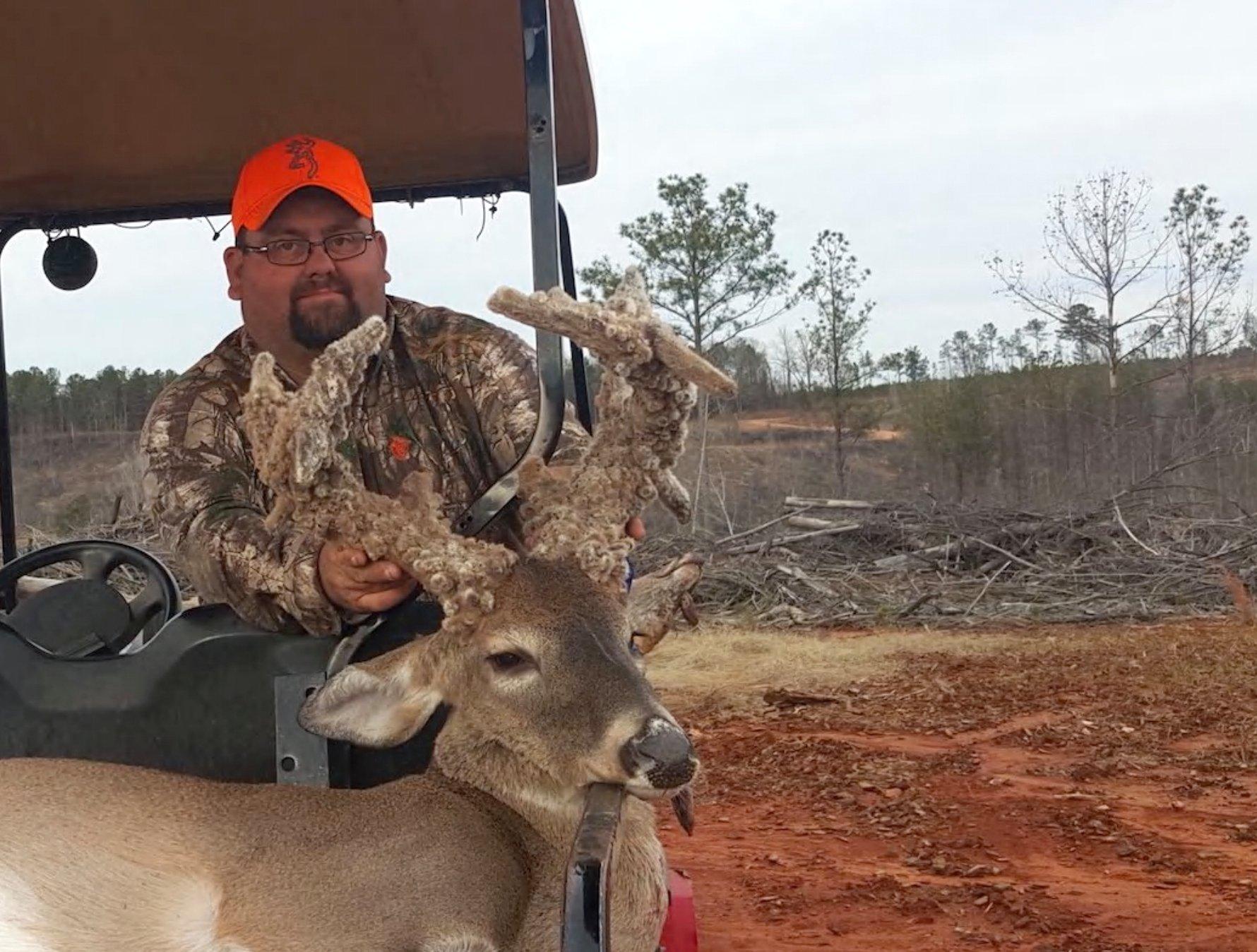
Crypto bucks produce gnarly, unique antlers. Image courtesy of Casey Burnett
Does a Stag Rut?
A cryptorchid buck is a different breed. Lacking sufficient testosterone, he doesn’t engage in the rut rituals of normal bucks. A crypto doesn’t rub or scrape in November. He is passive and lacks the chemical stimulation to spar and express dominance in the social hierarchy. A stag’s neck doesn’t swell in the rut. His tarsal glands are rarely stained because he doesn’t rub-urinate. A crypto buck doesn’t chase does; if given the opportunity, he wouldn’t breed a doe anyway.
Because a cryptorchid buck doesn’t shed his antlers, they stay in velvet year-round and continue to grow and fuse on the main beams as the deer matures. By 5 or 6 years of age, a stag might have sprouted blobs and masses on his thick beams, giving them a cactus appearance. Not only does a cactus buck have yet another cool name, he is one of the most prized trophies in the deer hunting world.
(Don’t Miss: WHAT IS DRONE DEER RECOVERY?)





